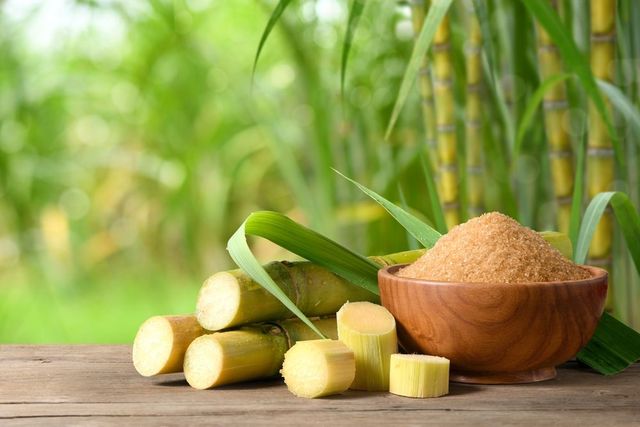Why Cane Sugar Processing Chemicals Are Vital for Modern Sugar Refining
The role of cane sugar processing chemicals in modern sugar refining can not be overemphasized, as they are essential to enhancing both the performance of extraction and the total high quality of the final product. Agents such as phosphoric acid and particular flocculants are utilized to remove contaminations, resulting in sugar that not just satisfies customer expectations yet additionally adheres to industry requirements.
Function of Processing Chemicals
The efficacy of walking stick sugar processing hinges considerably on the calculated application of handling chemicals. These chemicals play a pivotal role in improving the effectiveness and quality of sugar extraction and refining. From the initial stages of juice extraction to the last filtration actions, handling chemicals help with numerous important operations.
In the removal stage, chemicals such as phosphoric acid and calcium hydroxide are utilized to maximize the clarification process, helping to get rid of pollutants and put on hold solids from the walking cane juice. This not just boosts the yield however also makes sure the clearness of the end product. In addition, agents like flocculants help in the quick settling of impurities, thereby simplifying the total process.
As the processing advances, chemicals are used in decolorization and condensation stages. Triggered carbon and ion exchange resins serve to remove color and odor, making sure that the refined sugar fulfills customer top quality criteria. Inevitably, the function of handling chemicals prolongs beyond operational efficiency; they substantially influence the sensory features of the end product, adding to market competitiveness. Thus, the meticulous selection and application of these chemicals are vital for accomplishing optimal outcomes in walking cane sugar processing.
Key Types of Chemicals
Walking stick sugar processing depends on a selection of vital chemicals that help with each phase of manufacturing. These chemicals play vital roles in making clear, bleaching, and purifying the sugar drawn out from walking cane.
One main classification of chemicals includes flocculants, such as polyacrylamide, which aid in the clarification process by advertising the aggregation and settling of impurities. In addition, calcium hydroxide is typically employed to reduce the effects of level of acidity and aid in the elimination of non-sugar elements.
Bleaching agents, such as activated carbon and sulfur dioxide, are made use of to decolorize the syrup, causing a clearer end product. These chemicals assist get rid of color compounds that might influence the sugar's appearance and bankability.
Moreover, phosphoric acid acts as a pH regulatory authority during the handling phases, making sure optimum problems for the chemical activities associated with sugar extraction and purification.
Other crucial agents consist of edta (ethylenediaminetetraacetic acid), which chelates metal ions that might catalyze unfavorable reactions, and sodium hydroxide, which aids in pH control throughout the refining procedure. Jointly, these chemicals enhance effectiveness and guarantee a top quality walking stick sugar product.
Advantages for Sugar Top Quality
Typically overlooked, the use of particular handling chemicals dramatically boosts the general quality of cane sugar. These chemicals play an essential function in refining procedures, ensuring that the last product fulfills strict market requirements for pureness and preference.

Furthermore, refining chemicals aid in attaining a regular granulation and structure, which are important for customer approval. By managing the crystallization process, these chemicals make sure that the sugar crystals form consistently, causing a more appealing product that liquifies well in numerous applications.
In addition, using these chemicals can improve the life span of walking cane sugar by reducing wetness absorption and microbial development. In general, the tactical application of handling chemicals is crucial for supplying top quality walking cane sugar that fulfills consumer assumptions and sector needs.
Ecological Influence Factors To Consider

Furthermore, the energy-intensive nature of sugar refining, intensified by chemical use, frequently causes increased carbon emissions. This adds to environment modification and elevates issues relating to the sustainability of go to my site existing refining techniques. Additionally, the sourcing of these chemicals might entail techniques that endanger biodiversity, such as monoculture farming, which lowers the resilience of agricultural communities.

To mitigate these influences, sugar refiners are significantly exploring sustainable alternatives and adopting ideal methods that decrease chemical usage. Carrying out strenuous environmental management systems can assist guarantee that the refining procedure aligns with environmental criteria and advertises biodiversity. Inevitably, a balanced approach that focuses on both sugar high More Info quality and environmental stewardship is important for the long-term practicality of the sugar market.
Future Trends in Refining
As the sugar industry comes to grips with the ecological obstacles associated with traditional refining approaches, innovative techniques are emerging to boost both performance and sustainability. One considerable trend is the fostering of eco-friendly chemistry concepts, which prioritize the use of non-toxic, naturally degradable processing chemicals. This change not just decreases ecological impact yet likewise addresses consumer need for cleaner manufacturing approaches.
One more encouraging development is the application of sophisticated filtration modern technologies, such as membrane layer splitting up and adsorption procedures. These techniques boost the clearness and high quality of the sugar while minimizing the volume of wastewater created during refining. In addition, the combination of electronic modern technologies, including IoT and AI, is transforming functional performance by allowing real-time monitoring and anticipating maintenance, thus minimizing source waste.
In addition, using spin-offs from sugar refining, such as bagasse and molasses, is getting grip. These materials can be converted right into biofuels or value-added products, adding to a round economy within the sector. Jointly, these fads signify a shift towards even more sustainable techniques that not only enhance operational efficiency but also align with global sustainability goals, guaranteeing the future feasibility of sugar refining.
Final Thought
Walking stick sugar processing chemicals are necessary in contemporary sugar refining, substantially improving the efficiency and high quality of sugar removal. The calculated usage of these chemicals not only boosts the pureness and flavor of the last item however also makes certain constant crystallization and appearance. As the market significantly prioritizes sustainability, the adoption of environmentally-friendly processing agents is likely to shape future fads in refining, eventually resulting in higher quality products and prolonged service life for consumers.

Inevitably, a well balanced approach that prioritizes both sugar top quality and environmental stewardship is vital for the long-lasting viability of the sugar industry.
Walking cane sugar handling chemicals are crucial in contemporary sugar refining, substantially improving the efficiency and quality of sugar removal.